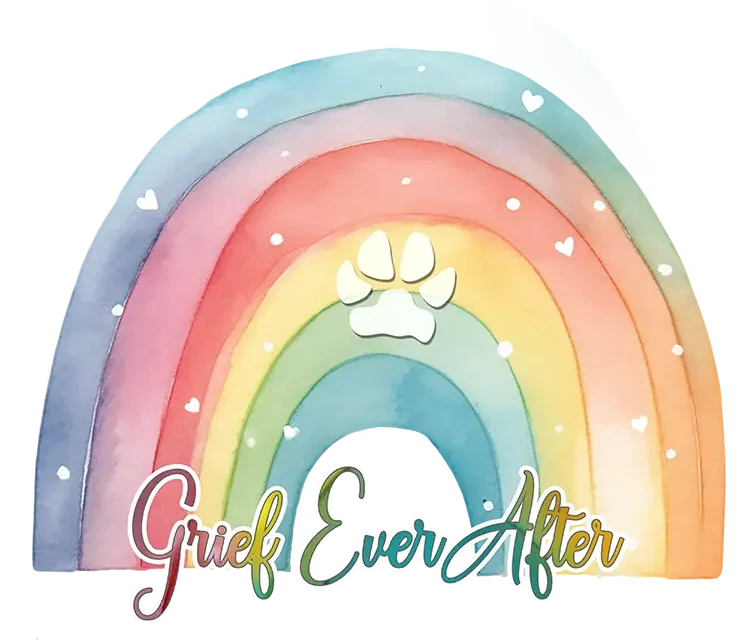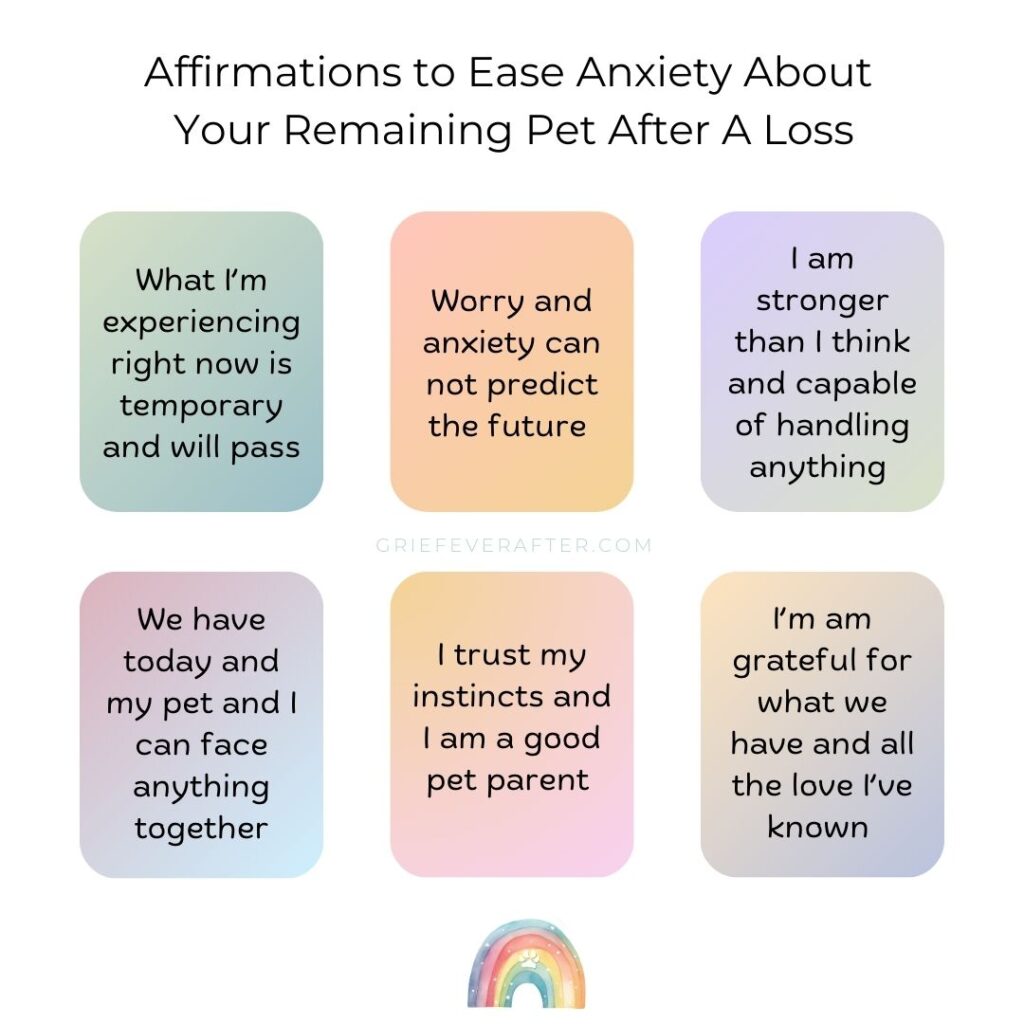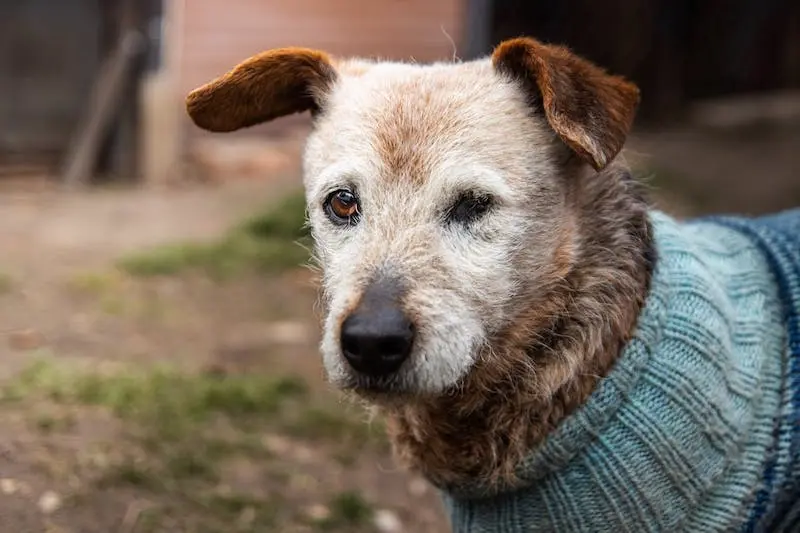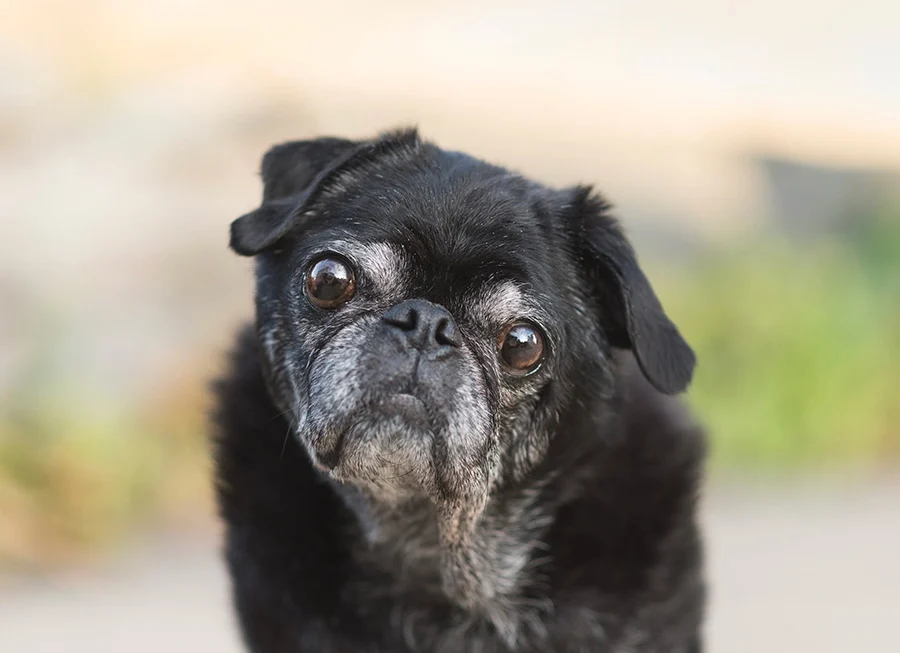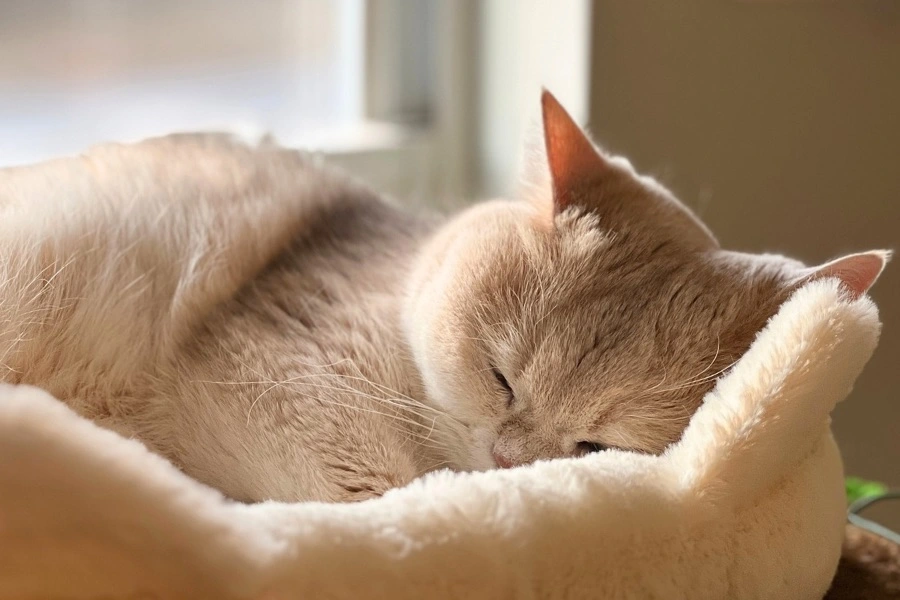Lots of things happen in the human brain when you’re grieving deeply. Your mind is in overdrive. Replaying everything that led up to your loss, trying to make it make sense. Conjuring up some version of a story if there is even a small hole or crack with no answers. Deciding on what we should feel guilty about at any given moment. And if you have another at home, coping with anxiety for your remaining pet is natural.
Part of what makes grief brutal for grievers, is being human.
It’s normal to experience a heightened sense of fear that something may happen to your pet that is here. Your psyche is working hard to try to ensure that you’ll never have to live through this grief again.
Now that you’ve experienced the heartbreak of losing someone so cherished, wanting a protective bubble around your other pet is pretty reasonable. Fears are unlocked of things that are seemingly “normal” in life. Suddenly everything seems a symptom of something that could result in grief.
If it’s not a symptom, it’s some type of vulnerability; a door that doesn’t shut tight, the weather, a busy road, needing someone else to watch your pet. In grief, the world seems scarier and less in your control.
There might be silent moments of inner panic that you can talk yourself down from. But there can also be a lot of spiraling and catastrophizing with this increased vigilance and fear.
Anxiety is a beast but when you have the right tools and tricks up your sleeve to combat it, you give it less power. You are the one in control.
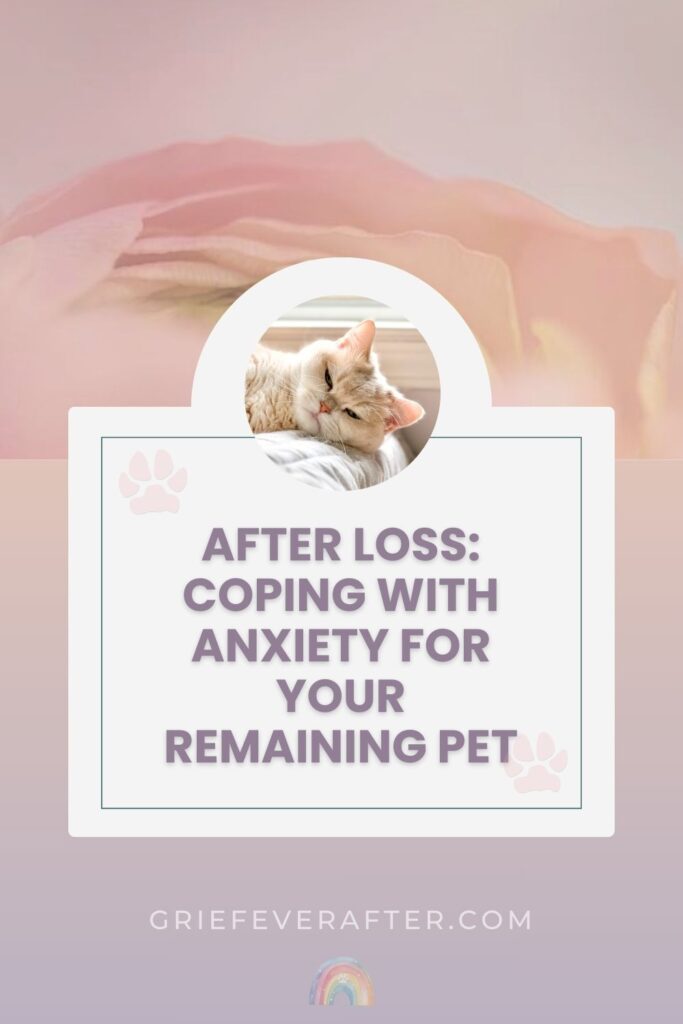
Keep a detailed health journal
Concrete, objective notes with dates and observations. The good, the bad, the normal, the unusual. A written reminder that your pet is and has been doing well, is a very concrete relief. It can offer much needed reprieve from anxiety.
If you are, at some point, faced with an “off day” or strange symptoms with your pet, having these detailed notes will be helpful medically. This can also serve as a testament of how much care and consideration you took in noticing the details.
Consider bi-annual check ups
Use proactivity as a tool to keep fear and anxiety at bay. Find a veterinarian you trust and value. Maintain your visit schedule. Be upfront with your vet about your intention to stay on top of your pet’s health needs. They are an important part of your pet’s care team.
The concept of ‘control your controllables’ is crucial for your well-being and peace of mind. In life, and even in death, there is so much that we have zero control over. Recognizing and fostering the things you do have control over is vital.
Gently challenge your anxieties
Anxiety is often not rooted in logic, and challenging your fears is hard. Have you ever heard of the philosophical principle, Occum’s Razor? The theory behind Occum’s Razor is that typically, the simplest reason for something is likely true.
A new cough does not automatically mean heart disease. Your pet having an episode of vomiting does not have to mean a critical diagnosis is looming. A limp could be from a sprain and doesn’t always indicate something catastrophic. And going outside and exploring the world does not always mean impending danger.
Fall back on your trusted vet for guidance. Schedule the appointment, ask the questions. Assuage your fears. But don’t put the cart before the horse and convince yourself the worst is imminent before having the opportunity to know that ‘something’ may be nothing.
Do things with your pet for enrichment, closeness and to remind yourself that they are ok
Witness your pet’s good health with your own two eyes. Go for a walk, the park, the beach, a car ride. Learn new tricks or get an interactive toy. Brush or groom them. Do mini photoshoots with treats as their paycheck.
Have fun with your pet. It’ll be good for both of you. Watching them being their normal selves, and enjoying all the attention, can really help ease fear and anxiety. Pets live so happily in the present moment. For humans, we have to put effort into doing that, but it’s worth it.
Daily Affirmations
Affirmations are meant to boost optimism. Optimism can grow to be bigger than fear. Read them, say them, repeat them regularly. Affirmations need practice.
The experience and emotions of grief and pet loss will not be forgotten. But we should not forget the experience of living without unrelenting anxiety and fear either. You and your pet deserve that, especially while healing in grief.
If choosing between focusing on fear of grieving again someday and wanting to live life fully and presently with your pet, I vote for the latter.
It’s easier said than done, but most things are.
Affirmations are meant to boost optimism. And optimism can grow to be bigger than fear. Read them, say them, repeat them regularly. Affirmations need practice.
The experience and emotions of losing a beloved pet will not be forgotten. But we should not forget the experience of living in a way that does not include unrelenting anxiety and fear either. You and your pet deserve that, especially while grieving another..
If choosing between focusing on fear of grieving again someday and wanting to live life fully and presently with your pet, I vote for the latter.
It’s easier said than done, but most things really are.
Maybe it’s a list in your phone, maybe it’s written or maybe it’s in your head. This is a mindfulness exercise. One that is meant to be easy, not a task.
Grief tends to render you feeling powerless. A very bad feeling. When worry might be getting the best of you and you’re able to recognize that, this little exercise can be very helpful.
It’s normal for grief and pet loss to usher in fears and anxieties. Especially about your pet or pets that are still here with you. If you aren’t new to anxiety, this can feel like an overload of a familiar struggle. If you are new to anxiety, it can feel very foreign to live with that intense feeling inside.
Remind yourself regularly that constant worrying about the future is not protective or proactive. But there are other, more constructive coping tools that are.
